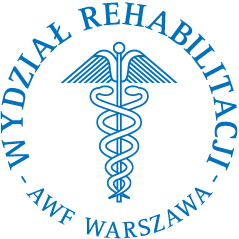


|
Current issue
Archive
Manuscripts accepted
About the journal
Editorial board
Reviewers
Abstracting and indexing
Contact
Instructions for authors
Publication charge
Ethical standards and procedures
Editorial System
Submit your Manuscript
|
1/2023
vol. 37 abstract:
Original article
Pilot study on the improvement effects of scapulothoracic exercises on the respiratory functions in sedentary young female adult with forward shoulder posture: a randomized control trial
Kanogwun Thongchote
1
,
Khomchan Threetepchanchai
1
,
Artima Chuwijit
1
,
Sarawut Lapmanee
2
1.
Department of Physical Therapy, Faculty of Physical Therapy, Srinakharinwirot University, Thailand
2.
Department of Basic Medical Sciences, Faculty of Medicine, Siam University, Thailand
Advances in Rehabilitation, 2023, 37(1), 23–32
Online publish date: 2023/03/13
View full text
Get citation
ENW EndNote
BIB JabRef, Mendeley
RIS Papers, Reference Manager, RefWorks, Zotero
AMA
APA
Chicago
Harvard
MLA
Vancouver
Introduction
Upper body muscular imbalance is a potential risk factor in various shoulder problems and respiratory functions. Exercises aimed at the pectoralis minor and scapular stabilizer muscles could alleviate muscular imbalances in forward shoulder posture (FSP). However, the efficacy of these exercises on respiratory function, including chest mobility, lung capacity, and respiratory muscle strength in FSP remains unclear. Material and methods Material and methods: In this randomized clinical trial, 28 female participants with FSP, aged 18–23 years, were divided into the control and exercise groups. The exercise programs were conducted five days/week for eight weeks. The distance from the acromion process to the wall was measured to determine FSP. Pectoralis minor length (PL) were measured from coracoid process to the fourth costosternal joint, thoracic kyphosis (TK) was measured along the thoracic spines, chest expansion was measured from the amplitude of thoracic wall circumference during full expiration and inspiration, maximal respiratory muscle strength generated during respiration (MIP), and maximum respiratory muscle strength during expiration (MEP); all were assessed pre- and post-exercise intervention. Results After the eight-week training program, an improvement in FSP was observed, manifested as decreased mean difference (p < 0.05) and TK (p < 0.003). The PL (p < 0.05) and lower part of chest expansion (p < 0.010) were restored compared to the control group. The strength generated in respiration (MIP) also improved in the exercise group (p < 0.013). Conclusions An eight-week pectoral muscle stretching and scapular stabilizer strengthening programme could reduce FSP, improving chest mobility and respiratory muscle strength. keywords:
forced vital capacity, maximum inspiratory pressure, rounded shoulder, strengthening exercises, thoracic excursion |
    |